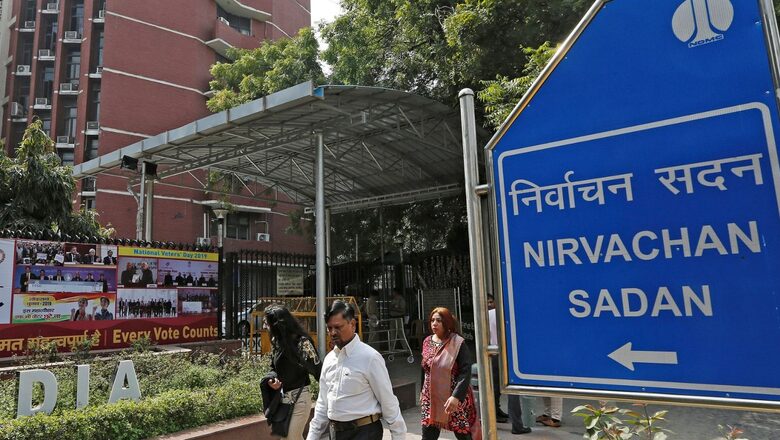EC Holds Consultation on Remote Voting; Some Oppn Parties Favour Consensus on Definition of Migrants

views
The Election Commission on Monday held consultations with recognised national and state political parties on its proposal on remote voting with a majority of opposition parties pressing for a broad-based consensus on legal, administrative and logistical framework, including the definition of domestic migrants before taking the matter further.
While some parties saw the demonstration of the prototype remote electronic voting machine (RVM), others stayed away from it, saying technological interventions can wait before a consensus is developed on legal and administrative issues.
Sources in the poll panel said some political parties requested for demonstration of Remote Voting Machine in the states also.
While the poll panel had invited eight national and 57 state parties recognised by it, 40 state parties attended the meet. Representatives of all eight national parties attended the consultation.
The parties agreed with broad objectives of every effort to include non-voting electors in the election process in the stakeholder consultations on electoral issues which was held after a gap of five years. They also suggested more such discussions on a regular basis in future.
On the request of the parties, the poll panel extended the date of submission of written views by them on various issues on RVM to February 28. The earlier date was January 31.
Representatives from political parties later said the EC assured that it would move ahead with remote voting only after a consensus emerges between the stakeholders.
“No opposition party wants to see the demonstration of a remote voting machine (RVM). First the issue of the need to have such a machine should be settled,” senior Congress leader Digvijaya Singh told reporters after participating in a meeting of political parties convened by the poll body to demonstrate the working of an RVM.
The former Madhya Pradesh chief minister said he felt that there would be no RVM demonstration till there is a consensus on having one. No political party is prepared to see the demonstration, he said.
“The idea of RVM is not acceptable,” Singh said, adding that the commission should address concerns about electronic voting machines raised by eminent citizens of the country.
The EC should also address the issue of urban apathy towards the election process, the Congress leader said.
Aam Aadmi Party leader Sanjay Singh too questioned the need for an RVM, saying there were other ways to increase participation of voters.
“How will we campaign in different states among eligible migrant voters using RVM? When there is a bypoll on one seat, say Jalandhar, how will smaller parties campaign in various states among eligible migrant voters who may be located in different states … RVM is not acceptable,” he added.
The poll panel had invited representatives of eight national and 57 recognised state parties for an RVM demonstration here.
The commission has maintained that RVMs, developed by the public sector undertaking Electronics Corporation of India, will be a standalone device not connected to the internet in any way.
The initiative, if implemented, can lead to a “social transformation” for migrants, the EC had said last month.
Each machine can handle up to 72 constituencies, allowing migrant voters to cast their votes from a remote polling booth.
In a letter to political parties last month, EC had said that domestic migrant/ internal migrant does not form a uniquely identifiable and countable class in the existing norms and standard definition.
“There is no central database available for migration within the country for the purpose as required for the matter under discussion (remote voting). The Registrar General of India, the Ministry of Labour and Employment and National Sample Survey Organisation lay different meanings to the term ‘migrant’,” it said.
“In the existing multiple meanings of ‘migrant’, periodicity and purpose of ‘absence from the place of origin lacks clarity. As per Census 2011, 45.36 Crore Indians (37 per cent) in India are migrants i.e., now settled in a place different from their previous residence, however, 75 per cent of such migrations are on account of marriages and family related reasons,” the letter said.
“It is also to be noted that internal out migration is predominant among the rural population and it is mostly intra-state (approximately 85 per cent),” it said.
In a recent statement on the issue, the poll panel had pointed out that the voter turnout in Lok Sabha elections 2019 was 67.4 per cent and the Election Commission was concerned about the issue of over 30 crore electors not exercising their franchise and also differential voter turnout in various states/Union Territories.
A senior functionary on Monday explained that the 30 crore voters who did not turn up at polling stations include migrants, youth and others.
EC had also been flagging the issue of “urban apathy” where people do not turn up to vote.
Read all the Latest Politics News here




















Comments
0 comment